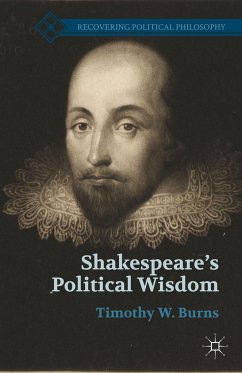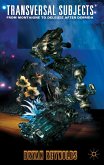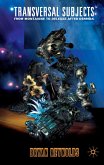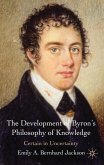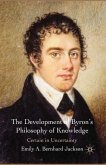Shakespeare's Political Wisdom offers interpretations of five Shakespearean plays with a view to the enduring guidance those plays can provide to human, political life. The plays have been chosen for their relentless attention to the questions that were once and may sometime become, or be recognized as being, the heart and soul of politics.
"Burns has written an illuminating study displaying an acute and informed intelligence." John Alvis, Professor of English, The University of Dallas, USA
"In his powerful treatment of five of Shakespeare's greatest works, Tim Burns lays out with a remarkable clarity and elegance the political wisdom central to these particular dramas. In doing so, he shows us how Shakespeare allows us to recover a classical conception of politics from the distortions of a politicized Christianity and the unexamined prejudices imposed on us by modern liberal politics. But Burns does more than just argue that Shakespeare's plays provide an occasion for serious moral and political reflection. His interpretations show how Shakespeare educates us through plays designed to purify our understanding of morality and of political life. Shakespeare's Political Wisdom is indispensable for all those who seek such understanding." - Bernard Dobski, Associate Professor and Chair, Political Science Department, Assumption College, USA
"In the nearly fifty years since Allan Bloom published his groundbreaking Shakespeare's Politics, many scholars have been inspired to unearth what others had suceeded in covering over: the poet's overarching intention to educate his audience, by speech and deed, in the moral and political concerns essential to a life worth living. Timothy Burns's magisterial study of five Shakespearean plays - Julius Caesar, Macbeth, Merchant of Venice, King Lear, and The Tempest - seems to me the finest of the books inspired by Bloom's original inquiry. As its title suggests, Shakespeare's Political Wisdom takes seriously the possibility that Shakespeare was, not merely brilliant or creative or inspired, but wise; and in each essay, with extraordinary clarity and grace, Burns puts before the reader irrefutable evidence of the Bard's depth of soul. An indispensable guide that delights as it instructs." - Robert C. Bartlett, Behrakis Professor of Hellenic Political Studies, Boston College, USA
"Burns has managed to offer a series of political reflections of such profound insight that students of both politics and Shakespeare would be well advised to devote careful attention to his new book." Wayne Ambler, Associate Professor, University of Colorado, USA
"In his powerful treatment of five of Shakespeare's greatest works, Tim Burns lays out with a remarkable clarity and elegance the political wisdom central to these particular dramas. In doing so, he shows us how Shakespeare allows us to recover a classical conception of politics from the distortions of a politicized Christianity and the unexamined prejudices imposed on us by modern liberal politics. But Burns does more than just argue that Shakespeare's plays provide an occasion for serious moral and political reflection. His interpretations show how Shakespeare educates us through plays designed to purify our understanding of morality and of political life. Shakespeare's Political Wisdom is indispensable for all those who seek such understanding." - Bernard Dobski, Associate Professor and Chair, Political Science Department, Assumption College, USA
"In the nearly fifty years since Allan Bloom published his groundbreaking Shakespeare's Politics, many scholars have been inspired to unearth what others had suceeded in covering over: the poet's overarching intention to educate his audience, by speech and deed, in the moral and political concerns essential to a life worth living. Timothy Burns's magisterial study of five Shakespearean plays - Julius Caesar, Macbeth, Merchant of Venice, King Lear, and The Tempest - seems to me the finest of the books inspired by Bloom's original inquiry. As its title suggests, Shakespeare's Political Wisdom takes seriously the possibility that Shakespeare was, not merely brilliant or creative or inspired, but wise; and in each essay, with extraordinary clarity and grace, Burns puts before the reader irrefutable evidence of the Bard's depth of soul. An indispensable guide that delights as it instructs." - Robert C. Bartlett, Behrakis Professor of Hellenic Political Studies, Boston College, USA
"Burns has managed to offer a series of political reflections of such profound insight that students of both politics and Shakespeare would be well advised to devote careful attention to his new book." Wayne Ambler, Associate Professor, University of Colorado, USA

